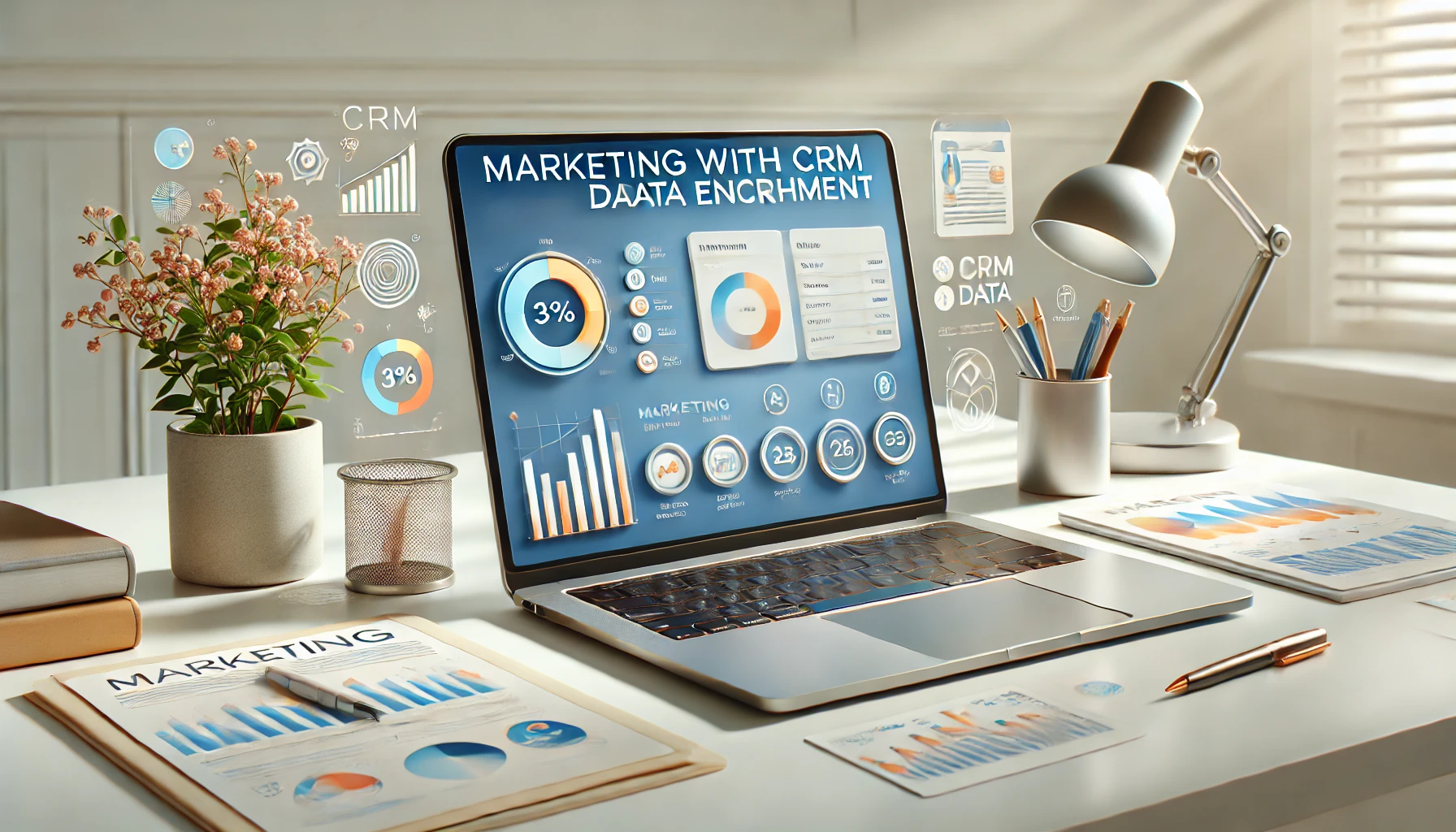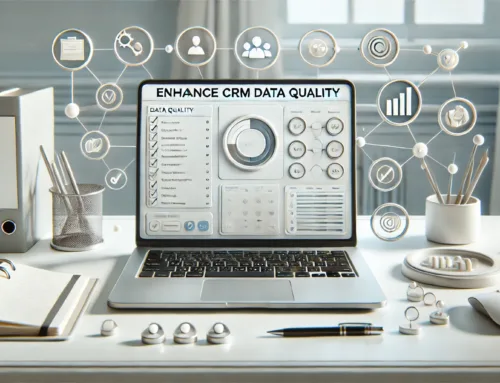When it comes to optimizing marketing with CRM data enrichment, you may think you have a decent grasp on your target audience. However, there’s a significant untapped potential waiting for you. By leveraging advanced tools to enrich your CRM data, you can unlock valuable insights that go beyond basic demographics. These insights hold the key to transforming your marketing strategy from generic to hyper-targeted, ensuring your messages resonate with precision. But how exactly can this be achieved? Let’s explore the transformative power of CRM data enrichment in revolutionizing your marketing efforts.
Understanding Target Audience Better
To optimize your marketing strategies effectively, understanding your target audience better is paramount. By conducting thorough demographic analysis, you can uncover valuable insights into the characteristics of your audience. This includes factors such as age, gender, income level, education, and location, which can help tailor your marketing messages to resonate with specific segments within your target market.
Moreover, delving into the behavioral patterns of your audience is crucial for crafting personalized and effective marketing campaigns. By analyzing how your audience interacts with your brand, their purchasing habits, online behavior, and preferences, you can create targeted messaging that speaks directly to their needs and interests.
Utilizing CRM data enrichment tools can provide you with a wealth of information to enhance your understanding of your target audience. By leveraging this data effectively, you can refine your marketing strategies, improve customer engagement, and drive better results for your business.
Segmentation for Personalized Messages
Understanding your target audience lays the foundation for effective marketing strategies. By utilizing customer profiles and behavioral analysis, you can segment your audience to deliver personalized messages that resonate with each group. Customer profiles help you categorize individuals based on demographics, purchase history, preferences, and more. Behavioral analysis delves into how customers interact with your brand, their engagement levels, and the actions they take.
Segmentation allows you to tailor your messages to specific segments, increasing relevance and engagement. For example, you can create different campaigns for loyal customers, new leads, or those who abandoned their carts. By sending targeted messages, you can address the unique needs and interests of each group, leading to higher conversion rates and customer satisfaction.
Analyzing customer data to segment your audience is crucial for personalized marketing efforts. It ensures that your messages are not only well-received but also drive desired actions from your customers.
Measuring Campaign Performance Effectively
For effective marketing strategies, measuring campaign performance is crucial. Two key methods for evaluating the success of your campaigns are conversion tracking and A/B testing. Conversion tracking allows you to monitor the actions that users take after interacting with your marketing efforts, providing valuable insights into the effectiveness of your campaigns in driving desired outcomes. By analyzing conversion rates, you can identify which campaigns are yielding the best results and optimize future strategies accordingly.
A/B testing, on the other hand, involves creating two versions of a marketing campaign and testing them against each other to determine which performs better. This method helps you understand what resonates with your target audience and allows for data-driven decision-making. By comparing metrics such as click-through rates, conversions, and engagement levels between the two versions, you can refine your campaigns for maximum impact.
Incorporating both conversion tracking and A/B testing into your marketing strategy will enable you to measure campaign performance effectively and make informed decisions for future campaigns.
Leveraging Insights for Campaign Improvement
Building on the insights gained from measuring campaign performance, the next step in optimizing your marketing strategy involves leveraging these valuable data points for campaign improvement. By delving into customer behavior and analyzing campaign effectiveness, you can refine your approach for better results. Here are three key actions to take:
- Segment Your Audience: Use CRM data enrichment to create more targeted customer segments based on behavior patterns. This allows for personalized messaging that resonates with different groups, enhancing campaign effectiveness.
- A/B Testing: Conduct A/B tests on various elements of your campaigns, such as subject lines, call-to-action buttons, or imagery. Analyze the results to understand what drives better engagement and conversion rates, enabling you to optimize future campaigns.
- Iterative Improvements: Continuously monitor campaign performance metrics and customer responses. Apply learnings from each campaign to make iterative improvements, adapting strategies based on data-driven insights for ongoing enhancement of marketing efforts.
Training Team on Data Utilization
To enhance your marketing team’s effectiveness in leveraging CRM data for campaign optimization, it is imperative to provide comprehensive training on data utilization. Training your team on data interpretation will enable them to extract meaningful insights from the data available in your CRM system. This involves understanding key metrics, identifying trends, and making data-driven decisions to improve campaign performance. Additionally, teaching your team about data visualization tools and techniques will help them present data in a clear and concise manner, making it easier to communicate insights to stakeholders. By equipping your team with the skills to interpret and visualize data effectively, you empower them to optimize marketing strategies based on concrete evidence rather than assumptions. This training will not only enhance the accuracy and efficiency of your campaigns but also foster a culture of data-driven decision-making within your marketing team.
Frequently Asked Questions
How Can CRM Data Enrichment Improve Customer Retention Rates?
To boost customer retention rates, leverage CRM data enrichment for enhanced customer segmentation. Tailor personalized communication strategies based on enriched data insights. This approach increases engagement and fosters long-term relationships, improving overall customer retention metrics significantly.
What Are the Best Practices for Integrating CRM Data With Other Systems?
To ensure seamless data integration and system synchronization, prioritize accuracy and quality assurance. By linking CRM data with other systems meticulously, you’ll enhance operational efficiency and decision-making. Maximize benefits through meticulous planning and execution.
Can CRM Data Enrichment Help in Predicting Future Trends and Behaviors?
CRM data enrichment through predictive modeling can enhance behavioral analysis, aiding in forecasting future trends and behaviors. By leveraging enriched data, you can make informed decisions, tailor marketing strategies, and anticipate customer needs more effectively.
How Can CRM Data Enrichment Support Cross-Channel Marketing Strategies?
To support cross-channel marketing strategies, CRM data enrichment enables personalized messaging and targeted campaigns. By leveraging enriched customer data, you can tailor communication across various channels, enhancing engagement and conversion rates effectively.
What Security Measures Should Be in Place to Protect Enriched CRM Data?
To protect enriched CRM data, data encryption must be top-notch, like Fort Knox. Access control should be tighter than a drum, allowing only authorized personnel in. Guard that data like it’s the crown jewels.




